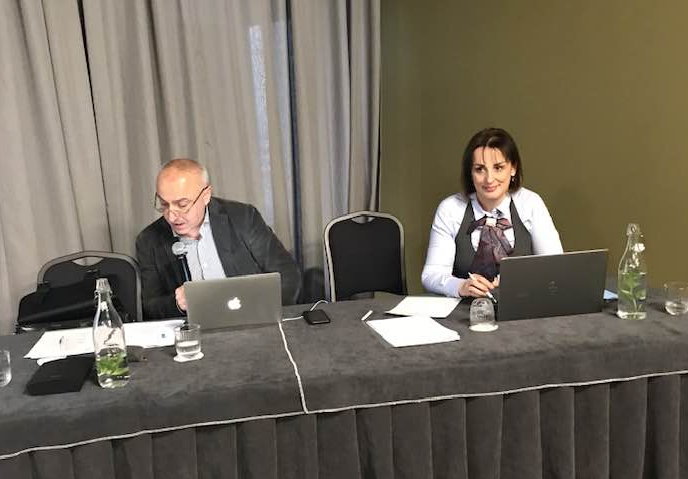A civil society forum on HIV/AIDS and tuberculosis, organized by the United Coordinating Council of the Country for Actions Against HIV/AIDS, Tuberculosis and Malaria, was held on 26 February in Tbilisi, Georgia. The event brought together important participants and experts to discuss plans to strengthen the health system and ensure the sustainability of programs to combat these diseases.
Maka Gogia, Georgian Harm Reduction Network, and David Otiashvili, NGO Alternative Georgia facilitated the forum, which provided a platform for the exchange of views and experiences. The participants discussed current initiatives, the role of civil society in their implementation, and the directions of the updated strategic plans to fight HIV/AIDS and TB. Also, during the forum, the national REActor presented relevant information regarding the REAct annual report.
The forum touched upon various aspects of the problem, including financing of programs, new approaches to prevention, and issues of access to medicines. The event was attended by representatives of both governmental and non-governmental sectors, as well as international organizations, including the Global Fund. The prospects of work under the regional project #SoS_2.0 for 2024, the effectiveness of programs to prevent HIV transmission to men who have sex with men, and other important issues related to infectious disease control were also discussed.
At this meeting CSOs and drug user community talked about existing drug policy and new restrictions within OST program that significantly worsens the condition of disabled people and other patients with severe chronic diseases. With the changes, the standards of legal protection of the persons who are employed deteriorate, and it is possible that business trips are of decisive importance for the performance of their professional activities, overall, it reduces the degree of integration of program patients into society and worsens their situation. Participants agreed to join their efforts to continue advocate activities to remove restrictive regulation in the program.
According to the participants, the forum was a significant step towards a more effective fight against HIV/AIDS and tuberculosis, providing a fruitful dialog and exchange of experience among various stakeholders.
Also read:
Georgia’s new legislation on substitution therapy program raises public concerns


